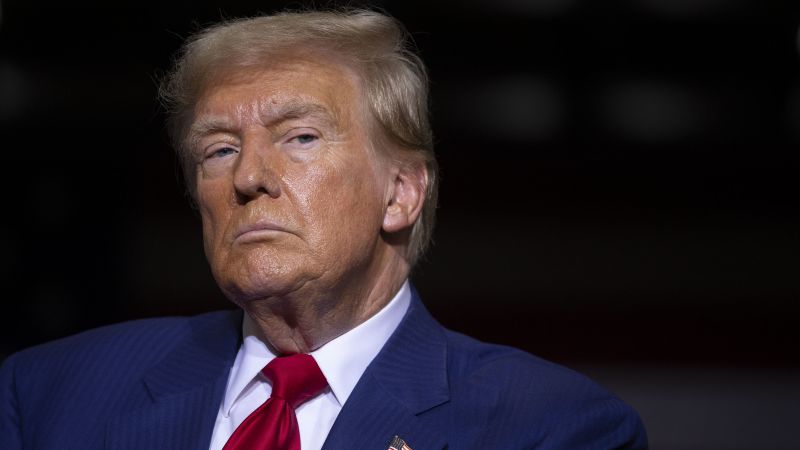In a recent telephone conversation between President Donald Trump and Russian President Vladimir Putin, significant discussions took place regarding a potential ceasefire in Ukraine. Putin indicated his intention to draft and send a document termed a “memorandum of peace,” outlining Russia’s requirements for such an agreement. This information emerged from sources within the U.S. government, including officials from the White House. However, despite the passage of over a week since that call, the U.S. has yet to receive the expected memorandum from Russia.
In light of these developments, Trump is contemplating the imposition of new sanctions on Moscow as he expresses frustration with the situation in Ukraine. Although options for punitive measures against Russia have been discussed in the weeks leading up to this point, Trump has not yet authorized any new sanctions. Reflecting on the escalating violence in Ukraine, which has included missile and drone attacks resulting in numerous casualties, Trump stated that he “absolutely” would consider new sanctions moving forward.
During public remarks on the matter, Trump made pointed comments about Putin, questioning the Russian leader’s actions and expressing concern over the humanitarian toll of the conflict. On a social media platform called Truth Social, he remarked that Putin might not fully appreciate the stability that occurred during his presidency and the potential consequences of his reckless behavior. Despite these bold statements, insider information suggests that Trump might still hesitate to apply new sanctions, as he privately worries that doing so could hinder prospects for peace talks between Russia and Ukraine.
During his conversation with Putin, Trump emphasized the importance of direct communication between Russia and Ukraine in negotiating peace and stated that the U.S. and Europe would support their efforts as needed. This dialogue took place shortly after preliminary talks were held between Ukrainian and Russian representatives in Turkey, which concluded with expectations that a memorandum would soon follow. The fact that Russia intends to send this document not only to Ukraine but also to the U.S. implies that Trump is keeping avenues open for future involvement in the peace process.
Meanwhile, Secretary of State Marco Rubio also engaged in discussions with Russian Foreign Minister Sergey Lavrov just before the Trump-Putin call. Rubio reported that Lavrov had indicated that Russian officials were preparing documentation to outline ceasefire requirements leading to broader negotiations. Both government officials shared their beliefs that the development of this memorandum was imminent.
As the U.S. awaits this document with growing impatience, Ukrainian President Volodymyr Zelensky criticized Putin’s diplomatic gestures as mere games. He accused Russia of playing with the concepts of diplomacy and negotiations. In Washington, congressional members from both parties have begun to exert pressure on Trump to implement stronger sanctions against Moscow following the recent escalations in attacks.
Senator Richard Blumenthal, a significant Democratic voice, asserted that members of Congress were compellingly urging for intensified sanctions following the violent weekend attacks. A bipartisan Senate bill, co-sponsored by Blumenthal and Trump ally Senator Lindsey Graham, is under discussion, aiming to impose severe sanctions that could include steep tariffs on nations purchasing Russian energy.
While Trump has alluded to potential sanctions targeting Russia’s banking sector and energy purchases, the specifics of any forthcoming measures remain uncertain. Following his communication with Putin, he shared with European leaders his reluctance to immediately align with them on new sanctions. Trump’s rationale appears to center around maintaining open lines of dialogue with Russia to drive them toward peace discussions.
French President Emmanuel Macron, reflecting on Trump’s recent commentary, suggested that it was crucial for the U.S. leader to recognize the deceptive nature of Putin’s claims about peace offers, urging Trump to convert his strong sentiments into actionable foreign policy movements.
In conclusion, as the U.S. Government continues to navigate this complex geopolitical landscape, the interplay of diplomacy and potential sanctions seems to hang in a delicate balance. This situation may evolve considerably based on forthcoming documents and discussions, with hopes that a peaceful resolution to the conflict in Ukraine might ultimately be realized.



